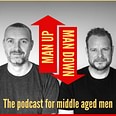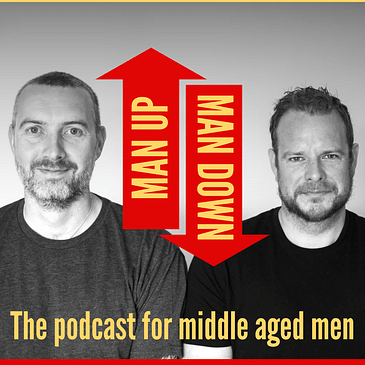In this episode we speak about sleep. For David, sleep has always been an issue. We are both light sleepers, and if we didn’t have a good night sleep, we could be quite grumpy.
Volker loves getting up at 5 am. It’s quiet and he has a morning routine which includes exercises and meditation. But he has to be in bed between 9 and 10 pm, in order to get a good 7 hours of sleep. Plus, he loves a 10-20 minutes nap at lunch time. Particularly when he had a busy morning, the nap resets his brain and he functions better post nap. He trained himself to take naps during his university days, working as a warden in halls of residence. It also helped him to get a better degree. Weekends could see longer naps, but usually not more time in bed. Maybe a sauna and gym session and a nap in front of the fire, a real treat. Another treat is for him to meditate in bed when he wakes up early, and he can then go back to sleep for a while, being fully relaxed.
Nick Littlehayes became a sleep researcher and consultant for Manchester United and the Sky cycling team, helping athletes to sleep better. The more sunlight we get during the day the better we sleep as our body produces a lot more melatonin. He further talks about daylight saving time leading to seasonal disorders. Before we had electricity and light, we naturally got more rest, because we couldn’t do anything else at a certain time of the evening.
Volker uses a daylight light to counteract seasonal disorder. Speaking about how things changed, Volker quotes how he grew up in Germany and it was common to have a 1-3 pm ‘siesta’ or ‘Mittagsruhe’ and shops closed at that period of time. We also mentioned Tim Ferris’ experiment from his ‘4 hour body week’ book, where he reduced his sleep to 8 x 20 minutes a day. Healthy or not, we only need a certain amount, but it has to be at the right time, and right intensity.
The days of burning the candle on both ends are over. It’s not a sustainable way of living, to only sleep 2-3 hours a night. In Psychology Today the CIA is described as using sleep deprivation to get people to talk. The results were hallucination, problems with speaking, and concentration. Tests on animals resulted in death.
Poor judgement is another cause of sleep deprivation. We all know the phrase ‘to sleep on a decision’ - but we are rushing in today’s world and don’t want to take our time and take regular breaks. You must take breaks in order to avoid burnouts and be able to function properly, being more productive than working without breaks (Book recommendation: Tony Schwartz, The way we are working isn’t working).
There is talk about creating ‘sleep rooms’ rather than mixing bedrooms with other activities, e.g. sex, or sharing a bedroom with someone else. Interestingly enough, in Germany every person has their own mattress and blankets, so there is actually less interference from the partner in your sleep cycle. How efficient is that?
If you have a wank, you can also go back to sleep if you wake up in the middle of the night. It’s a relaxation method, similar to a body scan meditation or just a transcendental meditation session. David did the research on the wanking, and an orgasm does release a few chemicals that help you sleep. Volker’s old piano teacher used to have a few whiskeys before bed to make him sleep better. Whatever works for you.
The problem is that a drink before bed might result in worse sleep. If you can’t sleep, you can also just rest, have a tired day, and go to bed earlier that night. And the reason to go to bed early is not to make up for the sleep you missed, but to give the body time to relax and the body will give itself more deep sleep, and more deeper recovery. Volker is obsessed with his Garmin and its functionality to measure sleep. His sleeping app he used previously to have a Garmin now has sleep data for about 7-8 years. It’s fascinating to see the trend.
David mentioned Orthosomnia - when someone gets obsessed with sleep data🙂 Maybe we are, but the easy stuff is: despite us knowing that we shouldn’t drink before we go to bed, or sleep bad in new places, we go on holidays to relax and eat and drink too much, having bad night sleep in a bed we aren’t used to. Do cooling blankets work? Or pillow spray? There is probably not much we haven’t tried.
Nick has 7 KSRIs, (key sleep recovery indicators).
- Arcadian rhythms
- Chrono Type, with 30% being night owls and 30% are early risers
- Recovery in Cycles
- Pre- and Post routines
- Activity and recovery in balance
- Recovery Environment
- Home and Away Sleepkit
Since Volker gave up caffeine, and David did recently as well, this has had a positive impact on sleep as well. If you get too used to coffee, as Volker used to be, he could have a coffee before going to bed, as the caffeine just wore off so quickly.
Let us know how sleep affects you. How many hours do you get?
Hosted on Acast. See acast.com/privacy for more information.




